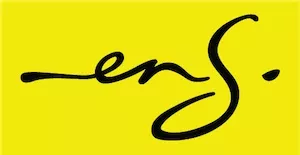The Rules Regulating the Conduct of the Proceedings of the Provincial and Local Divisions of the High Court of South Africa ("Uniform Rules of Court") were recently amended and came into effect on 12 April 2024. The amendment inserts a new rule 67A concerning costs, please read our previous article in this regard.
Recently, in Mashavha v Enaex Africa (Pty) Ltd [2024] ZAGPJHC, the High Court had to determine the costs to be awarded in light of this new rule, after delivering its judgment. The court briefly discussed the purpose and scope of rule 67A, which is summarised as follows:
- Rule 67A addresses itself only to awards of costs on the "party and party" scale.
- The purpose is to permit a court to exercise control over the maximum rate at which counsel's fees can be recovered under such an award.
- "Counsel" in this context should be understood to mean any legal practitioner, whether a referral advocate, a trust account advocate or an attorney with high court appearance rights, who actually does the work of counsel.
- Accordingly, the focus is on assigning a maximum value that may be recovered with respect to the work done in the presentation of the case before the court.
- The professional affiliation of the person undertaking the work does not matter.
- Rule 67A (2) states that the court may also take into account any failure to observe the provisions of rules 30A, 37, 37A and 41A; any overly-long written argument, oral argument, examination or cross-examination of witnesses; or any other misconduct that might justify a personal costs order (a costs order made against a person other than one of the litigants – usually a legal representative, or someone else acting in an official capacity, who is guilty of misconduct).
- It may also be relevant that the case fell within the jurisdiction of the Magistrate's Court, and might have been better determined there.
- Rule 67A (3)(a) provides that a court "shall", when making a party and party costs order, "indicate the scale in terms of rule 69, under which costs have been granted". These scales have been inserted into rule 69 (7) under the amendment that created rule 67A, which are scales "A", "B", and "C". These scales set the maximum rate at which counsel's fees may be recovered on a party and party bill. Scale "A" provides a maximum tariff of R375 per quarter hour; scale "B" sets a maximum tariff of R750 per quarter hour; and scale "C" sets a maximum tariff of R1 125 per quarter hour.
- Rule 67A (3)(b) requires the court to set a maximum recoverable rate for that work having regard to the importance, value and complexity of the matter.
- Rule 67A (3)(c) states that if a court declines to indicate a scale in its order, the lowest scale (scale "A") will apply.
- Rule 67A (4) provides for the right to apply for an order determining which parts of the proceedings, if any, were urgent, and whether the costs of more than one counsel may be recovered. The effect of this subrule is, that a different scale could be assigned to the services of each counsel whose fees are allowed under the rule.
Rule 67A applies prospectively
A costs order under rule 67A (3) should be made on cases instituted before 12 April 2024 but heard thereafter. The scale nominated in the order will only apply to work done on the matter after 12 April 2024.
For example, in a motion instituted in 2023, where a written argument was filed in January 2024, and in which oral argument was presented on 15 April 2024 and a party and party costs order on the "C" scale was made on 15 April 2024, the "C" scale will only apply to counsel's preparation and attendances (if they are otherwise recoverable) after 12 April 2024, to the appearance itself, and to any recoverable post-hearing attendances.
Fees for work done before 12 April 2024 will be recoverable under the rules applicable to the taxation of counsel's costs as they were then.
Court's approach
Firstly, the appropriate scale, "A", "B", or "C", should be identified based on the importance, value, and complexity of the matter. Secondly, consider whether, because of inartful or unethical conduct of the nature identified in rule 67A (2), that scale should be reduced. This reduction would result in the successful party not being able to recover counsel's costs to the extent they would have otherwise been entitled.
Conclusion
In this matter, counsel for the first respondent motivated for the maximum rate, scale "C". However, the court emphasised that what is relevant under rule 67A is the complexity of the argument, rather than the potential complexity of the overall matter. The court deemed the argument to be brief and straightforward, lasting under an hour. As a result, it held that the recovery of counsel's fees on scale "A" was more than sufficient. Furthermore, the court declined to make any further order, given that under rule 67A (3)(c), the application of scale "A" is the effect of the current judgment.
The content of this article is intended to provide a general guide to the subject matter. Specialist advice should be sought about your specific circumstances.



